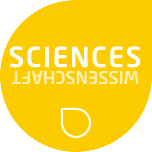Projects
The different actors of the Science Pillar of the Tri-National Metropolitan Region of the Upper Rhine collaborate on many different projects. Thanks to the INTERREG Upper Rhine programme, the crucial instrument for the implementation of the TMO-strategy, grants have been made available to fund cross-border research projects.
Cross-border research projects in the Tri-National Metropolitan Region of the Upper Rhine:
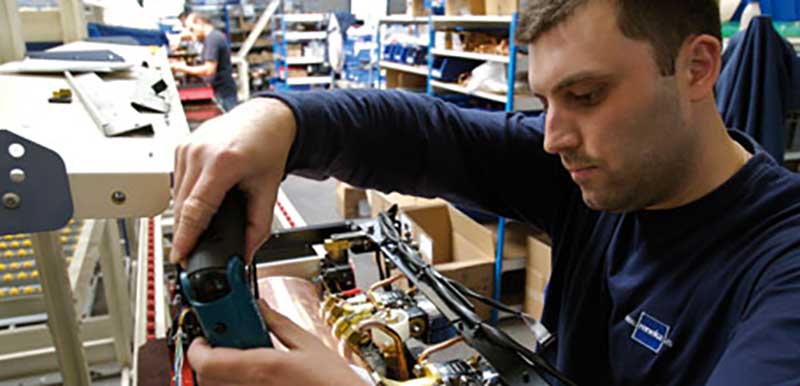
 The first European Grouping of Territorial Cooperation (EGTC) “Eucor – The European Campus” was founded in the Upper Rhine region, consisting of the University of Basel, the University of Freiburg, the Haute-Alsace University, the University of Strasbourg as well as the Karlsruhe Institute of Technology. With the European Campus these five universities hope to set a new standard in cross-border research and education, so as to together crucially strengthen their position amongst international competition and anchor the best minds and ideas in the Upper Rhine area.
The first European Grouping of Territorial Cooperation (EGTC) “Eucor – The European Campus” was founded in the Upper Rhine region, consisting of the University of Basel, the University of Freiburg, the Haute-Alsace University, the University of Strasbourg as well as the Karlsruhe Institute of Technology. With the European Campus these five universities hope to set a new standard in cross-border research and education, so as to together crucially strengthen their position amongst international competition and anchor the best minds and ideas in the Upper Rhine area.
The European Campus is the crystallization of the cross-border field of science in the Upper Rhine. This project is intended to implement structural measures in order to reinforce the existing potential of universities and to overcome the various administrative obstacles to university cooperation across borders. With the skills and capacities of researchers, doctoral, graduate and undergraduate students, Eucor seeks the establishment of a clearly prominent, borderless area which fosters research and science and has international appeal. Additionally, Eucor will help to assemble and fund new training programs, facilitate professional integration into the labor market, and extend and advance the mobility of students, teachers, researchers and administrative staff.
Partners: University of Basel, University of Freiburg, University of Haute-Alsace, Karlsruher Institute for Technology, University of Strasbourg, Ministry of science, research and arts Baden-Württemberg, Ministry of national education, higher education and resear, canton Basel-Landschaft, canton Basel-Stadt, Region Grand Est, Eurométropole Strasbourg.
For more information: http://www.eucor-uni.org/
 In the cross-border alliance that is TriRhenaTech, the universities of applied sciences of the Upper Rhine have come together to reinforce cooperation in research in the tri-national metropolitan region. This alliance was created by the signing of an agreement of collaboration between the University of Applied Sciences in Karlsruhe, Furtwangen, Offenburg and the University of Applied Sciences and Arts Northwestern Switzerland, as well as Alsace Tech, which represents the fourteen universities of applied sciences in Alsace. The primary objective of TriRhenaTech is to identify the actors interested in cross-border projects and to organize meetings between those actors in order to provide information on funding opportunities, as well as to provide additional information and support so as to facilitate project applications and implentation in the cross-border context.
In the cross-border alliance that is TriRhenaTech, the universities of applied sciences of the Upper Rhine have come together to reinforce cooperation in research in the tri-national metropolitan region. This alliance was created by the signing of an agreement of collaboration between the University of Applied Sciences in Karlsruhe, Furtwangen, Offenburg and the University of Applied Sciences and Arts Northwestern Switzerland, as well as Alsace Tech, which represents the fourteen universities of applied sciences in Alsace. The primary objective of TriRhenaTech is to identify the actors interested in cross-border projects and to organize meetings between those actors in order to provide information on funding opportunities, as well as to provide additional information and support so as to facilitate project applications and implentation in the cross-border context.
Partners: Offenburg University, University of Applied Sciences Karlsruhe, Furtwangen University, Alsace Tech, University of Applied Sciences and Arts Northwest Switzerland, University of Applied Sciences Kaiserslautern.
The aim of the SERIOR (Security Risk Orientation) project is the construction of the “Upper 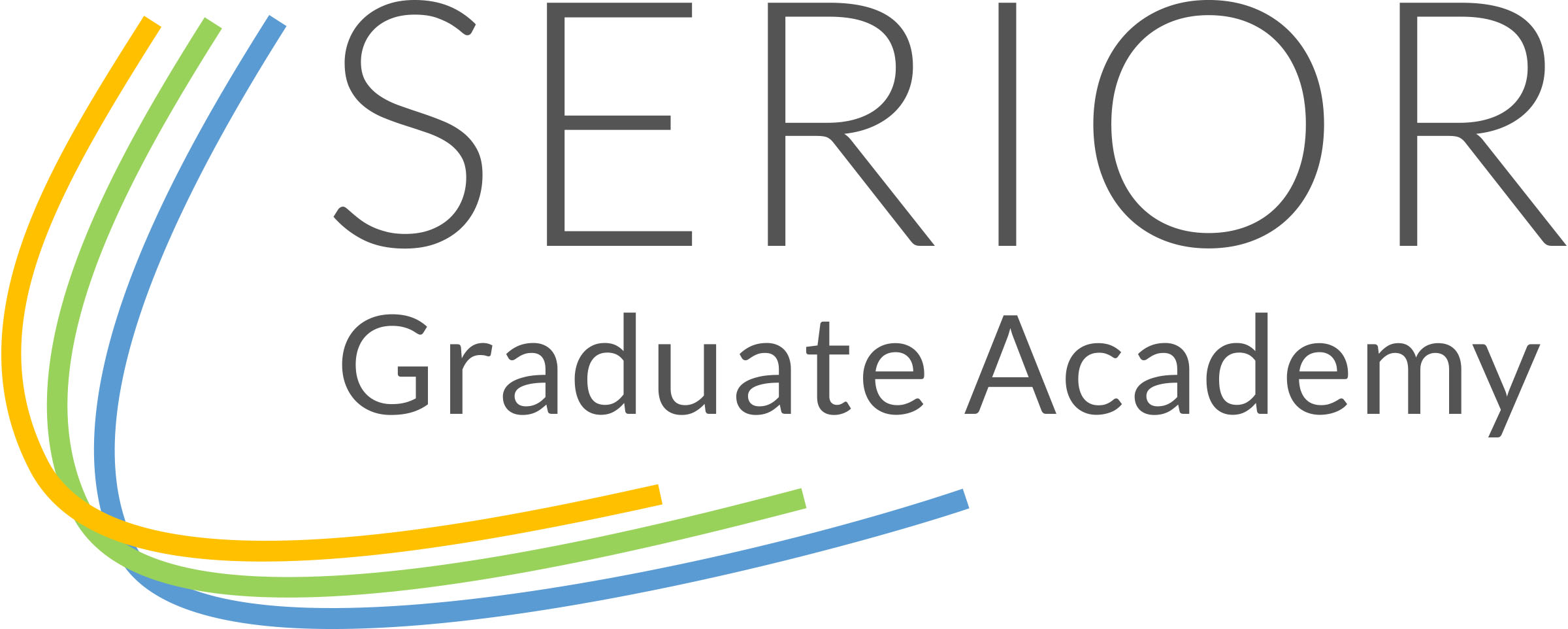 Rhine Tri-national Graduate Academy Security Risk Orientation”. Through this project, the six Upper Rhine universities want to expand the capacity of research in the areas of security, risk management and guidance in the most sustainable and best possible way. New training programs have been created on the subjects of knowledge transfer in business and in politics in order to ensure that all of the actors who bear the leading responsibility of training and mentoring young scientists are involved. Furthermore, experts in business, administration, and politics in the Upper Rhine region will be involved as associated partners. SERIOR will offer a new intercultural, interdisciplinary and practical training and support program for young scientists as well as young researchers in the area of risk management.
Rhine Tri-national Graduate Academy Security Risk Orientation”. Through this project, the six Upper Rhine universities want to expand the capacity of research in the areas of security, risk management and guidance in the most sustainable and best possible way. New training programs have been created on the subjects of knowledge transfer in business and in politics in order to ensure that all of the actors who bear the leading responsibility of training and mentoring young scientists are involved. Furthermore, experts in business, administration, and politics in the Upper Rhine region will be involved as associated partners. SERIOR will offer a new intercultural, interdisciplinary and practical training and support program for young scientists as well as young researchers in the area of risk management.
Partners: University of Koblenz-Landau, Eucor (University of Freiburg, Karlsruhe Institute of Technology, University of Basel), Canton Basel-Landschaft, Canton Basel-Stadt, Swiss Confederation, Haute-Alsace University, University of Strasbourg, CNRS, ENGEES.
For more information: www.serior.eu

The construction of the “Upper Rhine Cluster for Sustainability Research” involves the strengthening of academic excellence as well as interactions between science and society in the Upper Rhine, notably around issues of the “governance of sustainable growth”. Additionally, the cluster provides the framework of the field in the context of the European Campus. One of the operating objectives of the URCforSR project is to build a stable, long-term and efficient governing structure for cross-border cooperation. Other project objectives are, in particular, the planning and configuration of energy resources, the transformation process and the technologies that power social changes and changes in infrastructure, as well as changes in multiculturalism and management.
Partners: University of Freiburg, Karlsruhe Institute of Technology, Haute-Alsace University, University of Strasbourg, University of Basel, University of Koblenz-Landau.
For more information: www.sustainability-upperrhine.info
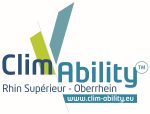 The project “Clim’ability” aims to develop tailored evaluation methods and adaptation strategies regarding the effects of climate change for the companies of the Upper Rhine area. The specific challenge of this project lies in the transnational component in the tri-border area of France, Germany and Switzerland. The objectives of this project are to identify vulnerabilities to climate change, as well as the problems and challenges of climate change faced by various companies, and to provide these companies with adequate services. Within the scope of research for “Clim’ability”, work will be in conjunction with the CCI Alsace in order to accurately characterize the climate risks facing Alsace and the Upper Rhine.
The project “Clim’ability” aims to develop tailored evaluation methods and adaptation strategies regarding the effects of climate change for the companies of the Upper Rhine area. The specific challenge of this project lies in the transnational component in the tri-border area of France, Germany and Switzerland. The objectives of this project are to identify vulnerabilities to climate change, as well as the problems and challenges of climate change faced by various companies, and to provide these companies with adequate services. Within the scope of research for “Clim’ability”, work will be in conjunction with the CCI Alsace in order to accurately characterize the climate risks facing Alsace and the Upper Rhine.
Partners: INSA de Strasbourg, University of Freiburg, German Weather Service, TRION Climate, University of Koblenz-Landau, Rhineland-Palatinate Centre of Excellence for Climate Change Impacts, CCI Alsace, Météo France, Haute-Alsace University, University of Basel, University of Lausanne, Swiss Confederation, Canton Basel-Stadt, University of Kaiserslautern.
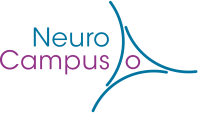 NeuroCampus effectively contributes to making the Upper Rhine region an area of excellence in neuroscience education and training, as well as to strengthening the existing structure of neuroscience networks in the Upper Rhine region. This project plans on establishing a program of excellence with a training approach based on the complementary nature of the partner universities. Additionally, the project seeks to increase expertise and general knowledge of the field in the region. The dynamic nature, diversity, and scientifically rigorous level of the training program is individually tailored to students, researchers, health professionals, and the general public. The training program of NeuroCampus will contribute to the international visibility of neuroscience in the Upper Rhine region.
NeuroCampus effectively contributes to making the Upper Rhine region an area of excellence in neuroscience education and training, as well as to strengthening the existing structure of neuroscience networks in the Upper Rhine region. This project plans on establishing a program of excellence with a training approach based on the complementary nature of the partner universities. Additionally, the project seeks to increase expertise and general knowledge of the field in the region. The dynamic nature, diversity, and scientifically rigorous level of the training program is individually tailored to students, researchers, health professionals, and the general public. The training program of NeuroCampus will contribute to the international visibility of neuroscience in the Upper Rhine region.
Partners: Neurex, University of Freiburg, Freiburg University Hospital, Eurométropole de Strasbourg, Bas-Rhin County, CNRS, INSERM, University of Strasbourg, Hôpitaux Universitaires de Strasbourg, University Psychiatric Hospital Basel, Swiss Confederation, University of Basel, Cantons Basel-Stadt and Basel-Land.
 The RARENET network aims to optimize the care of those affected by rare and complex diseases in the Trinational Metropolitan Region. The program emphasizes comprehensive and autonomous education and information for the various target groups: health professionals, teachers, researchers, experts and laymen, students, as well as the general public. RARENET also encourages the interconnection and interaction between these various groups. Despite the fact that a large majority of these diseases are genetic, some of them are influenced to a large extent by the environment. With this in mind, this patient-oriented project combines classical training methods with the use of ICT, which involves participants in an active training program that focuses on a comprehensive biological collection and analysis of samples to improve the diagnosis and knowledge of these pathogens. These measures serve not only to increase general awareness but also the knowledge base and sphere of influence of the European Campus.
The RARENET network aims to optimize the care of those affected by rare and complex diseases in the Trinational Metropolitan Region. The program emphasizes comprehensive and autonomous education and information for the various target groups: health professionals, teachers, researchers, experts and laymen, students, as well as the general public. RARENET also encourages the interconnection and interaction between these various groups. Despite the fact that a large majority of these diseases are genetic, some of them are influenced to a large extent by the environment. With this in mind, this patient-oriented project combines classical training methods with the use of ICT, which involves participants in an active training program that focuses on a comprehensive biological collection and analysis of samples to improve the diagnosis and knowledge of these pathogens. These measures serve not only to increase general awareness but also the knowledge base and sphere of influence of the European Campus.
Partners : Université de Strasbourg, Hôpitaux Universitaires de Strasbourg, GIE CERBM-IGBMC, CNRS Alsace, Universitätsklinikum Freiburg, Universitätsmedizin Mainz, Universitätsklinikum Heidelberg
Associated Partners : Universitätskliniken für Zahnmedizin Basel, Universitätsklinikum Heidelberg – ZSE Städtisches Klinikum Karlsruhe, ACURA Rheumazentrum Baden-Baden, Hôpital Civil Pasteur Colmar, Hôpital Civil Emile Muller Mulhouse, CHU de Reims, CH Belfort Montbéliard, CHRU de Besançon, CHRU de Nancy, CHR de Metz-Thionville, Hôpitaux Privés de Metz, CHU de Dijon, AP-HP, Centre de Santé Dentaire de la Ville de Strasbourg, SVK-ASP, Oberrheinische Zahnärztegesellschaft, Hypophosphatasie Europe, AFM Téléthon, Association Lupus France, Association française du Lupus et autres maladies auto-immunes, Hypophosphatasie Deutschland e.V., Lupus Erythematodes Selbsthilfegemeinschaft e.V., Rheumaliga – Baden-Württemberg e.V., CHARGE Syndrom e.V., Bundesverband Williams-Beuren-Syndrom e.V., Familienhilfe-Polyposis coli e.V., Lupus diagnostic EUROIMMUN Medizinische Labordiagnostika AG Lübeck, Inoviem Scientific, Phadia GmbH.
For more information: www.rarenet.eu
This project involves a lively exchange between the countries of the Upper Rhine area in the use of reclaimed asphalt (RA), as well as the development of new strategies for the recycling of reclaimed asphalt without the addition of bituminous binders and at ambient temperature, for low traffic pavement (municipal roads) in the Upper Rhine area. The objectives of this project are to ensure a high recycling rate of RA, limiting the negative impact on the environment (CO2 emissions, energy and resource consumption) and the reduction of road maintenance costs. With this project asphalts already containing high amounts of RA, or due to numerous maintenance measures have a heterogeneous composition could be optimally recycled. Therefore, significant environmental and economic benefits can be achieved from managing low traffic roads, about 50% of the Upper Rhine road network.
Partners: INSA de Strasbourg, Regional Association Mittlerer Oberrhein, City of Karlsruhe, District of Karlsruhe, Südwest Asphalt LLC, University of Applied Sciences of Karlsruhe, CEREMA , Haut-Rhin County, Bas-Rhin County, LABINFRA, Société Alsacienne de Recyclage des Matériaux, EMPA (the Swiss Federal Laboratories for Materials Science), Ziegler AG – Construction company, University of Applied sciences Northwestern Switzerland, Colas Est, DAI (German Asphalt Institute), Federal Highway Research Institute.
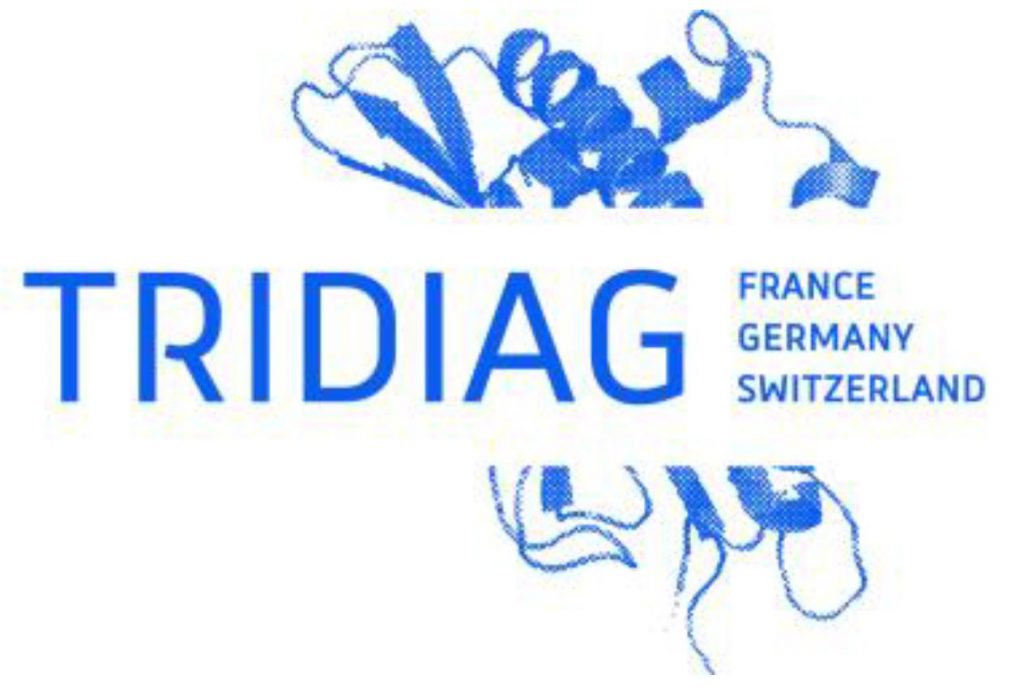 The goal of this cross-border project is validate the two following diagnostic tests based on MIC molecules: a molecular diagnostic test to evaluate compatibility at the DNA level between donor and recipient for bone marrow transplantation, and a serology diagnostic test to measure the amount of anti-MIC antibodies in the serum from renal transplant patients. Each test will be validated in two stages: the first stage is technological, and will allow development of the current “research format” methods so they follow laboratory routine and adhere to the latest technology (Luminex and next-generation sequencing). The second stage is clinical, and involves a large retrospective study including samples from transplant patients from Freiburg, Basel, and Heidelberg. The molecular diagnostic kit will be used for bone marrow transplants, which require a high degree of compatibility between donors and recipients. The serology diagnostic kit will be used mainly for kidney transplants, where the presence of anti-MIC antibodies have proven to have a harmful role. At the end of the project, these tests will be used in routine clinical practice to reduce the incidence of graft-versus-host disease in bone marrow transplants as well as in certain kidney transplants. On the basis of reliable internal data, the project shows that the time is ideal for a massive transfer of knowledge from basic research to clinical routine.
The goal of this cross-border project is validate the two following diagnostic tests based on MIC molecules: a molecular diagnostic test to evaluate compatibility at the DNA level between donor and recipient for bone marrow transplantation, and a serology diagnostic test to measure the amount of anti-MIC antibodies in the serum from renal transplant patients. Each test will be validated in two stages: the first stage is technological, and will allow development of the current “research format” methods so they follow laboratory routine and adhere to the latest technology (Luminex and next-generation sequencing). The second stage is clinical, and involves a large retrospective study including samples from transplant patients from Freiburg, Basel, and Heidelberg. The molecular diagnostic kit will be used for bone marrow transplants, which require a high degree of compatibility between donors and recipients. The serology diagnostic kit will be used mainly for kidney transplants, where the presence of anti-MIC antibodies have proven to have a harmful role. At the end of the project, these tests will be used in routine clinical practice to reduce the incidence of graft-versus-host disease in bone marrow transplants as well as in certain kidney transplants. On the basis of reliable internal data, the project shows that the time is ideal for a massive transfer of knowledge from basic research to clinical routine.
Partners: University of Strasbourg, Swiss Confederation, Canton Basel-Country, Canton Basel-Stadt, Canton Aargau, University Hospital of Freiburg, Heidelberg University Hospital, University of Mainz, University Hospital of Basel.
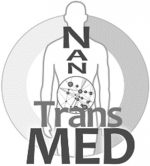 With the help of a multifunctional approach based on the chemistry of dendritic macromolecules, NANOTRANSMED hopes to rise to the challenge of providing early diagnosis and monitoring vascular inflammation after implants so as to better treat patients. This approach allows nanomedicine to achieve increased stability in vivo, reduced toxicity, and a specific capacity to reduce antibacterial properties, all with just a single tool. Nanotransmed will develop dendritic MRI and ultrasound probes for early and specific diagnosis of cancer and its treatment via combination therapy, as well as for the visualization of the inflammatory effects of implants. These new probes and implant coatings can be used directly at the end of the project by the hospitals of Basel and Freiburg. The innovative results of this interdisciplinary consortium and additional expertise will allow for further national and international scientific influence in the area of nanomedicine in the Trinational Metropolitan Region. Measures communicating the developed innovations and knowledge acquired through the project are intended to contribute to the valor of the project in the scientific community, industry, and general public not only in the Upper Rhine area but also at the European and international level.
With the help of a multifunctional approach based on the chemistry of dendritic macromolecules, NANOTRANSMED hopes to rise to the challenge of providing early diagnosis and monitoring vascular inflammation after implants so as to better treat patients. This approach allows nanomedicine to achieve increased stability in vivo, reduced toxicity, and a specific capacity to reduce antibacterial properties, all with just a single tool. Nanotransmed will develop dendritic MRI and ultrasound probes for early and specific diagnosis of cancer and its treatment via combination therapy, as well as for the visualization of the inflammatory effects of implants. These new probes and implant coatings can be used directly at the end of the project by the hospitals of Basel and Freiburg. The innovative results of this interdisciplinary consortium and additional expertise will allow for further national and international scientific influence in the area of nanomedicine in the Trinational Metropolitan Region. Measures communicating the developed innovations and knowledge acquired through the project are intended to contribute to the valor of the project in the scientific community, industry, and general public not only in the Upper Rhine area but also at the European and international level.
Partners: CNRS, Canton Basel-Land, University Hospital of Freiburg, Heidelberg University, Eucor (The European Campus) GECT, INSERM, University of Strasbourg, Haute-Alsace University, University Hospital of Basel, CELLEC BIOTEK AG, Canton Basel-City, Swiss Confederation, Canton Aargau, University Hospital of Mainz.
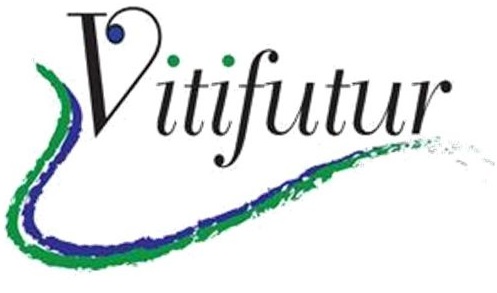
VITIFUTUR seeks to be a platform of excellence for research, innovation and transfer of knowledge with the aim of developing and implementing more sustainable viticultural practices. By connecting research agencies and actors alike, the cluster will bring institutional stakeholders, academics and viticulture actors together in order for them to cope with the new challenges in sustainable viticulture. The creation of a Transnational Academy for Applied Research in Viticulture aims at educating young scientists as well as managers from the wine-growing industry about sustainable viticultural practices.
Partners: Staatliches Weinbauinstitut Freiburg, Albert-Ludwigs-Universität Freiburg, Karlsruher Institut für Technologie, Universität Koblenz-Landau, RLP AgroScience, Jülius-Kühn I-Institut, Dienstleitungszentrum Ländlicher Raum Rheinland Pfalz (DRL), Université de Haute Alsace – Laboratoire Vigne Biotechnologies et environnement, CNRS – Institut de biologie moléculaire des plantes, INRA Grand Est-Colmar, Université de Bâle / Universität Basel.
Associated partners: Rebschule V&M Freytag GbR, Bauern-und-Winzerverband Rheinland-Pfalz Süd e.V., Badischer Weinbauverband e.V., Pépinières Jenny, Conseil Interprofessionnel des vins d’Alsace (CIVA), Bioreba AG.
 Several invasive species threaten cultures and natural areas in orchards and vineyards in Upper Rhine. In that context, Germany, France and Switzerland are working in collaboration on how to sustainably protect cultivated plants and nearby ecosystems against them. This project seeks to fulfill the following goals: identifying and studying the spreading of these species, carrying on with the development and the implementation of measures of integrated pest management against these organisms as well as assuring the viability of the production in orchards and vineyards. Therefore it is planned to set up a cross-border monitoring strategy providing information about its results for advisors and farm businesses. Furthermore, it is foreseen to create, inter alia, a forecast model, that will be integrated in spatial data services and internet platforms.
Several invasive species threaten cultures and natural areas in orchards and vineyards in Upper Rhine. In that context, Germany, France and Switzerland are working in collaboration on how to sustainably protect cultivated plants and nearby ecosystems against them. This project seeks to fulfill the following goals: identifying and studying the spreading of these species, carrying on with the development and the implementation of measures of integrated pest management against these organisms as well as assuring the viability of the production in orchards and vineyards. Therefore it is planned to set up a cross-border monitoring strategy providing information about its results for advisors and farm businesses. Furthermore, it is foreseen to create, inter alia, a forecast model, that will be integrated in spatial data services and internet platforms.
Partners: Dienstleitungszentrum Ländlicher Raum Rheinpfalz, Informationssystem Integrierte Pflanzenproduktion (ISIP), Julius-Kühn Institut, Bundesforschungsinstitut für Kulturpflanzen (JKI), Landwirtschaftliches Technologiezentrum Augustenberg, RLP AgroScience, Staatliches Weinbauinstitut Freiburg (WBI), Association du verger expérimental d’Alsace (VEREXAL), Chambre Régionale d’Agriculture Grand Est (CRAGE), Chambre d’Agriculture d’Alsace (CARA), Conseil Interprofessionnel des Vins d’Alsace (CIVA), Fédération régionale de défense contre les organismes nuisibles en Alsace, Institut Français de la Vigne et du Vin (IFV), Institut National de la Recherche Agronomique (INRA), Forschungsinstitut für biologischen Landbau (FiBL), Kanton Aargau mit dem Landwirtschaftlichen Zentrum Liebegg, Kanton Basel-Landschaft mit dem Landwirtschaftlichen Zentrum Ebenrain, Kanton Solothurn mit dem Bildungszentrum Wallierhof.
Associated Partners: Kompetenzzentrum Obstbau Bodensee (KOB), Landratsamt Breisgau-Hochschwarzwald; Landratsamt Karlsruhe; Landratsamt Ludwigsburg, Landratsamt Ortenaukreis, Comptoir agricole de Hochfelden (CAH), Coopérative Agricole de Céréales-Ampelys (CAC), Groupe Armbruster, Vitisphère-Alsace.
Faced with the need to reduce the intensive use of chemical products in the agricultural sector as well as to preserve the air quality, avoiding volatilization of fertilizers, this project’s main objective is to implement agroecology. Due to the creation of a cross-border network of agricultural enterprises and 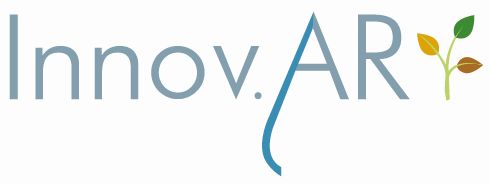 applied research institutes, the project seeks to develop the different methods in regards to agroecology, adapted to farmers from the Upper Rhine region. These alternatives will also encourage farmers to work together.
applied research institutes, the project seeks to develop the different methods in regards to agroecology, adapted to farmers from the Upper Rhine region. These alternatives will also encourage farmers to work together.
Partners: Arvalis-Institut du végétal, Agentur ANNA, Rauch Landmaschinenfabrik, GmbH, Landratsamt Breisgau-Hochschwarzwald, Landwirtschaftliches Technologie Zentrum Augustenberg, Institut National de la Recherche Agronomique (Alsace), Université de Haute-Alsace, Ministerium für Ländlichen Raum und Verbraucherschutz (Stuttgart), Forschungsinstitut für biologischen Landbau (Suisse), Landwirtschaftliche
Untersuchungs-und Forschungsanstalt (Speyer), Chambre d’agriculture d’Alsace, Association pour la relance Agronomique en Alsace, Chambre régionale d’agriculture Grand Est, Association de surveillance et d’études de la qualité de l’air en Alsace, Région Grand Est.
Associated partners: Regierungspräsidium Freiburg, Badischer landwirtschaftlicher Hauptverband, Universität Hohenheim, Internationaler Mais und Informationsring, Landesanstalt für Entwicklung der Landwirtschaft und der ländischen Räume Schwäbisch, Dienstleistungszentrum Ländlicher Raum Rheinpfalz, Pfälzische Frühspeise- und Veredlungskartoffel-Erzeugergemeinschaft w. V., Comptoir agricole de Hochfelden, Institut national de la recherche agronomique, Université de Haute Alsace, Coopérative agricole des céréales Ampelys, APCO, RITTMO, Direction régionale de l’Alimentation, de l’Agroculture et de la Forêt Grand Est, KUHN S.A, Institut Transfrontalier d’application et de développement agronomique, Forschung Institut für biologischen Landbau, Landwirtschaftliches Zentrum Ebenrain.
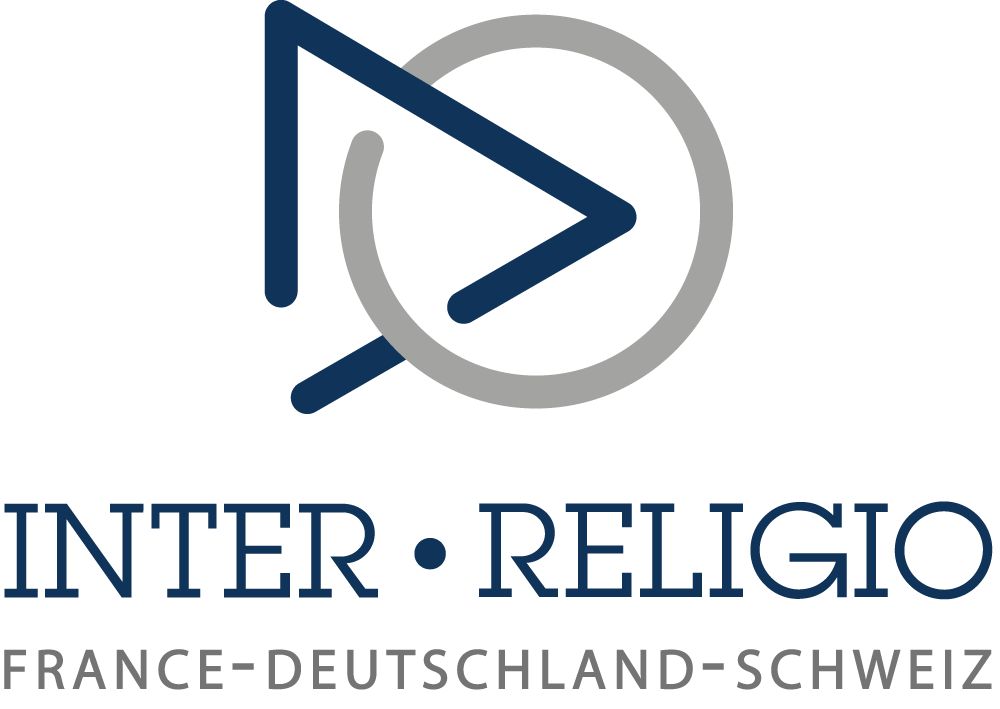 INTER-RELIGIO is a project which aims to answer the challenges caused by the religious cohabitation of our societies. Cohabitation and integration of religious groups in our societies are the challenge that France, Switzerland and Germany are currently trying to cope with. Academics undertake to solve it thanks to exchange of knowledge, excellence research and training as well as leading innovation. INTER-RELIGIO is a European cross-border network which connects a consortium of 6 educational institutions in Upper Rhine. The initiative is a real innovation in terms of training and research offers that has the ability to face the actual interreligious challenges. In order to achieve that, a specific academic diploma called “Interreligious in theory and practice” will be offered to professionals (minister of religion, religious officials, chaplains, professors…) as well as to voluntary workers (association representatives) from interreligious field. Moreover a Master called “Interreligious and society” will allow students with Humanities and Social Sciences training background to take advantage of it.
INTER-RELIGIO is a project which aims to answer the challenges caused by the religious cohabitation of our societies. Cohabitation and integration of religious groups in our societies are the challenge that France, Switzerland and Germany are currently trying to cope with. Academics undertake to solve it thanks to exchange of knowledge, excellence research and training as well as leading innovation. INTER-RELIGIO is a European cross-border network which connects a consortium of 6 educational institutions in Upper Rhine. The initiative is a real innovation in terms of training and research offers that has the ability to face the actual interreligious challenges. In order to achieve that, a specific academic diploma called “Interreligious in theory and practice” will be offered to professionals (minister of religion, religious officials, chaplains, professors…) as well as to voluntary workers (association representatives) from interreligious field. Moreover a Master called “Interreligious and society” will allow students with Humanities and Social Sciences training background to take advantage of it.
Partners: University of Strasburg, University Basel, Swiss confederation, canton Basel-Stadt and Landschaft, University Tübingen, University Heidelberg.
Associated partners: University of Freiburg, Hochschule für Judische Studien Heidelberg.
The goal of the project is to develop a unique concept throughout Europe, that ensure to  support the cross-border utilization in research infrastructures among the 14 research institutions participating in the project. By the end of the project in 2020, researchers intend to take inventory of research infrastructure in the Upper-Rhine and integrate this data in a newly created digital database. Furthermore, an overall strategy for a successful, cross-border model will be developed in order to keep going with a joint utilization of existing infrastructures. Thus, it is planned to promote the scientific presence in the Upper Rhine. Within this framework, the establishment of a large-scale research infrastructure is also to be considered.
support the cross-border utilization in research infrastructures among the 14 research institutions participating in the project. By the end of the project in 2020, researchers intend to take inventory of research infrastructure in the Upper-Rhine and integrate this data in a newly created digital database. Furthermore, an overall strategy for a successful, cross-border model will be developed in order to keep going with a joint utilization of existing infrastructures. Thus, it is planned to promote the scientific presence in the Upper Rhine. Within this framework, the establishment of a large-scale research infrastructure is also to be considered.
Project partners: University of Freiburg, University of Strasbourg, Karlsruhe Institut for Technology, Offenburg University of Applied Sciences, Karlsruhe University of Applied Sciences, University of Upper Alsace, Furtwangen University of Applied Sciences.
Associated partners: University of Koblenz-Landau, SATT Conectus Alsace, INSA Strasbourg, Inserm, University of Basel, University of Applied Sciences and Arts Northwestern Switzerland
